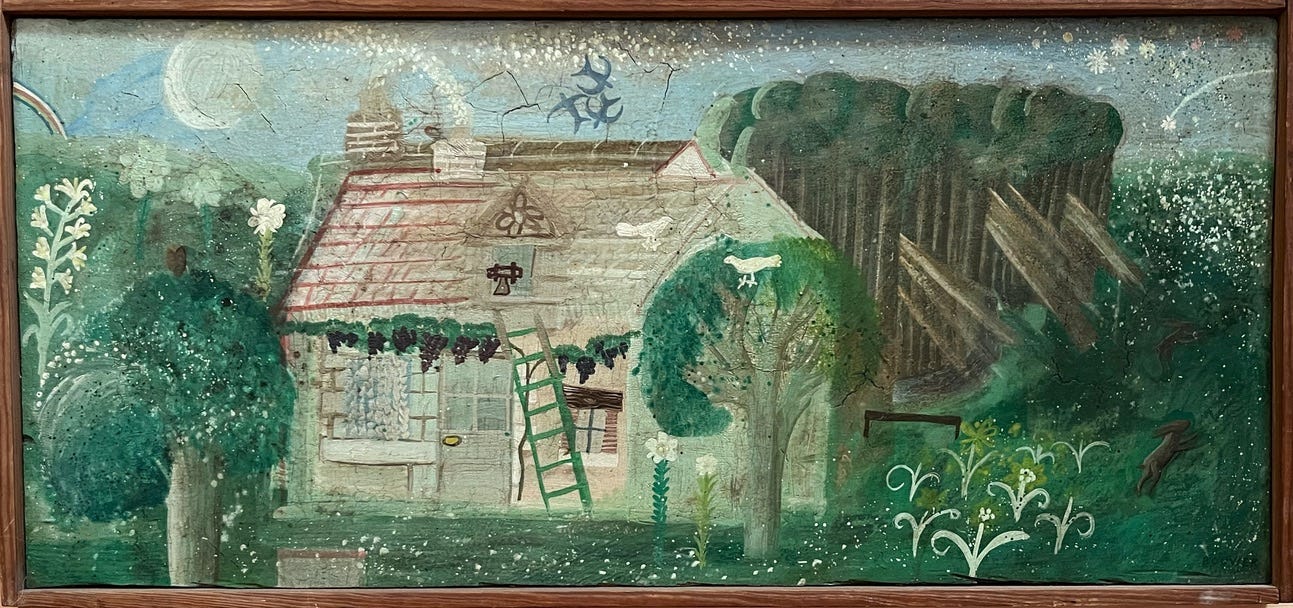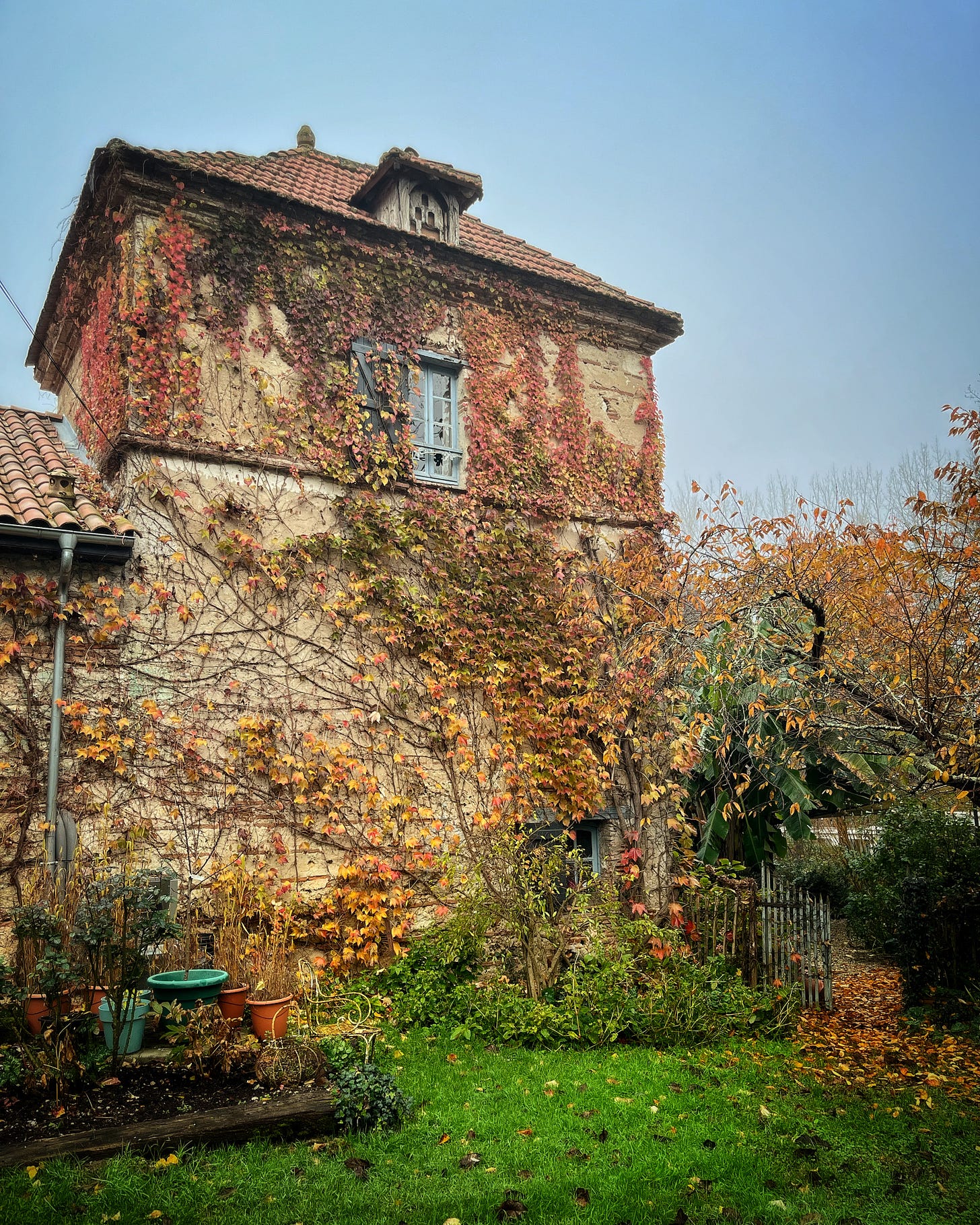The Empty Table Syndrome
Champêtre: Home Alone or The Dreaded Solo Sessions in the Holiday Kitchen
Welcome to the ongoing journey of living that French country life I call Champêtre as real life, not an extended vacation—part of celebrating the positive but disparate life between cultures as a marathon, not a sprint.
The Empty Table Syndrome hits hard.
It’s quieter than usual these November mornings at Camont. The moody Garonne River Valley fog lingers most of November in shallow swales well past noon. The grass is soaked as the walnut tree drips pearls onto the garden. But when the fog finally lifts, the sky is crystalline blue, and winter sunlight gilds the French stone walls. The Boston Ivy has skipped its bright red this year and gone straight to egg-yolk yellow; the pigeonnier is now camouflaged between the shimmering gold poplar trees along the canal. And as autumn comes late in this part of Southwest France, there are rumbles of a ragged seasonal turnover, often collectively referred to as “The Holidays.”
With these Holiday preparations, there is a flurry of tips and guides across the food media and spilling into the social media airwaves on how to produce the annual singular meal where you cook everything for everyone-you-have-ever-known—family, friends, or strangers. In my Champêtre-perfect version of entertaining, I imagine well-scrubbed, long wooden tables full of collected pottery holding rustic food, pretty mismatched candlesticks, and the noise of stories as laughing friends pass platters around the ever-convivial table. This year, it’s a different story. It is calm, quiet, and a little bit blue.
My two refrigerators are still full, and the pantry overflows with late-harvest preserves of quince paste and charcuterie. I should be content. But I have spent the last few weeks struggling with a new kind of loss in the aftermath of the end of the visitors season. I call it the Empty Table Syndrome. Naming it like its companion syndrome below makes it possible to talk about it a little tongue-in-cheek while laughing at my usually serious self. Isn’t that what gratitude is really about? Being grateful for what you have, not what you don’t have?
Empty Nest Syndrome is a feeling of grief and loneliness parents may feel when their children move out of the family home, such as to live on their own or to have a higher education. It is not a clinical condition.
First, I am so glad it’s not a clinical condition—the Empty Table Syndrome—because that means we can fix it. But how did I get here?





